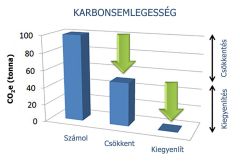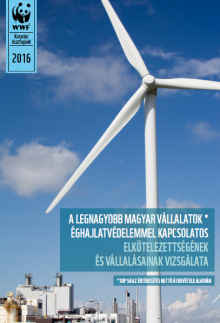Population Connection Launches Project Highlighting the Effects of Population Growth on Climate Change
As the United States’ leading grassroots organization seeking to stabilize global population through education about population challenges and advocacy supporting U.S. investment in voluntary domestic and international family planning programs, Population Connection will launch a project aimed at illuminating the link between empowering women and girls and addressing climate change while mitigating its harmful effects on the world’s most vulnerable populations.
A generous pool of donors, led by James R. Bennett of Arkansas, has stepped forward to provide initial funding for this project. Major activities will include a speakers series; outreach on campuses and through digital media; and the addition of new, downloadable college-level materials available to those interested in the links between population growth, reproductive health, social justice, and environmental challenges—with a particular focus on climate change.
Growing Populations, Growing Carbon Footprints
Global warming poses unprecedented threats to humanity. Little has been done to reduce global carbon dioxide emissions despite 40 years of scientists’ warnings, with C02 emissions soaring from just over 10 gigatons per year in 1979 to nearly 35 gigatons per year today. While wealthy nations must account for historical emissions and the highest current per capita emissions, research indicates that slower future population growth “could reduce global emissions by 40% or more in the long-term.”
As people in low-income countries achieve improvements in standards of living, those countries’ carbon footprints will grow—both from a necessary rise in per capita emissions and from population growth.
Nearly half of the world’s pregnancies are unintended, and 214 million women in the developing world want to prevent pregnancy but aren’t using modern contraceptives. To lessen the impacts of global population growth on carbon emissions and biodiversity loss, we must implement human rights-based policies to extend family planning and reproductive health care to people worldwide—including in the high-emitting United States, where 45% of pregnancies are unintended.
Population Connection draws the links between global population growth and the countless environmental challenges facing us—we educate people of all ages and motivate them to take action. We’ve made steady progress over the past 50 years, educating young people on population concepts and advocating for expanded access to voluntary family planning programs for people everywhere. Nearly 100 countries have achieved replacement rate fertility since our founding in 1968—up from four countries at that time.
But we must accelerate our progress to solve the climate crisis.
Population Connection’s campaign will bring population stabilization into the public discourse about climate change mitigation and adaptation, adding momentum to achieve a dramatic increase in access to family planning and reproductive health care programs for people around the world. In this way, we can lessen the impacts of global population growth on C02 emissions and biodiversity loss, while increasing vulnerable populations’ capacity for climate change adaptation and resilience. For more information on this project, please contact Population, Health, and Environment (PHE) Specialist Hannah Evans.
Shauna Scherer, Vice President for Marketing and Development















